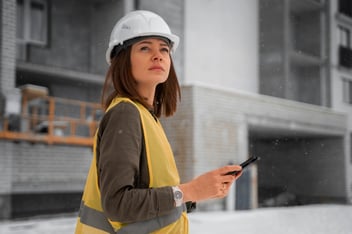5 Reasons to Make Continuing Education a Priority
In facilities management, efficiency and precision are vital to success. As organizations strive to increase efficiency and enhance precision, the importance of continuing education for facility managers and technicians cannot be overstated. As technology evolves, regulations shift, and facility needs change, facility management teams must stay ahead. Here are five reasons why ongoing education is crucial for success in facilities management, no matter the industry.
1. Tailoring Solutions to Organizational Needs
Every organization has unique requirements when it comes to facility management. Continuous education empowers teams to customize software and tools to align seamlessly with specific organizational needs. This adaptability ensures that the facility management strategy is tailored to the goals and objectives of the organization as a whole.
2. Adapting to Technological Innovation
Facilities management software and tools are at the forefront of technological innovation. Continuous education provided to managers and technicians ensures that teams are well-versed in the latest advancements, enabling them to harness the full potential of these tools. This adaptability is critical to optimizing operational processes and staying efficient.
3. Optimizing Resource Utilization
Through continuing education and training, facility management professionals gain a deeper understanding of the capabilities of the tools at their disposal. This knowledge allows for the optimal utilization of resources, from efficient scheduling of maintenance tasks to strategic asset management. The result is a more streamlined operation with minimized waste and increased productivity.
4. Realizing Cost Savings
Ongoing education in facility management goes beyond operational proficiency; it directly impacts the organization's bottom line. Teams committed to ongoing learning can identify cost-effective solutions, prevent unnecessary expenditures, and make informed decisions, contributing to substantial cost savings over time.
5. Fostering a Culture of Innovation
A commitment to continuing education fosters a culture of innovation within facility management teams. Team members who stay abreast of the latest technologies and best practices are more likely to contribute creative solutions to challenges. This innovative mindset positions the organization at the forefront of industry advancements.
Continuing education is not merely a checkbox but a cornerstone for success in facility management. It is an investment in adaptability, efficiency, and long-term cost savings, ultimately ensuring that facility management teams navigate the complex demands of their role with expertise and innovation.
.png?width=268&height=52&name=f1-logo2%20(1).png)



